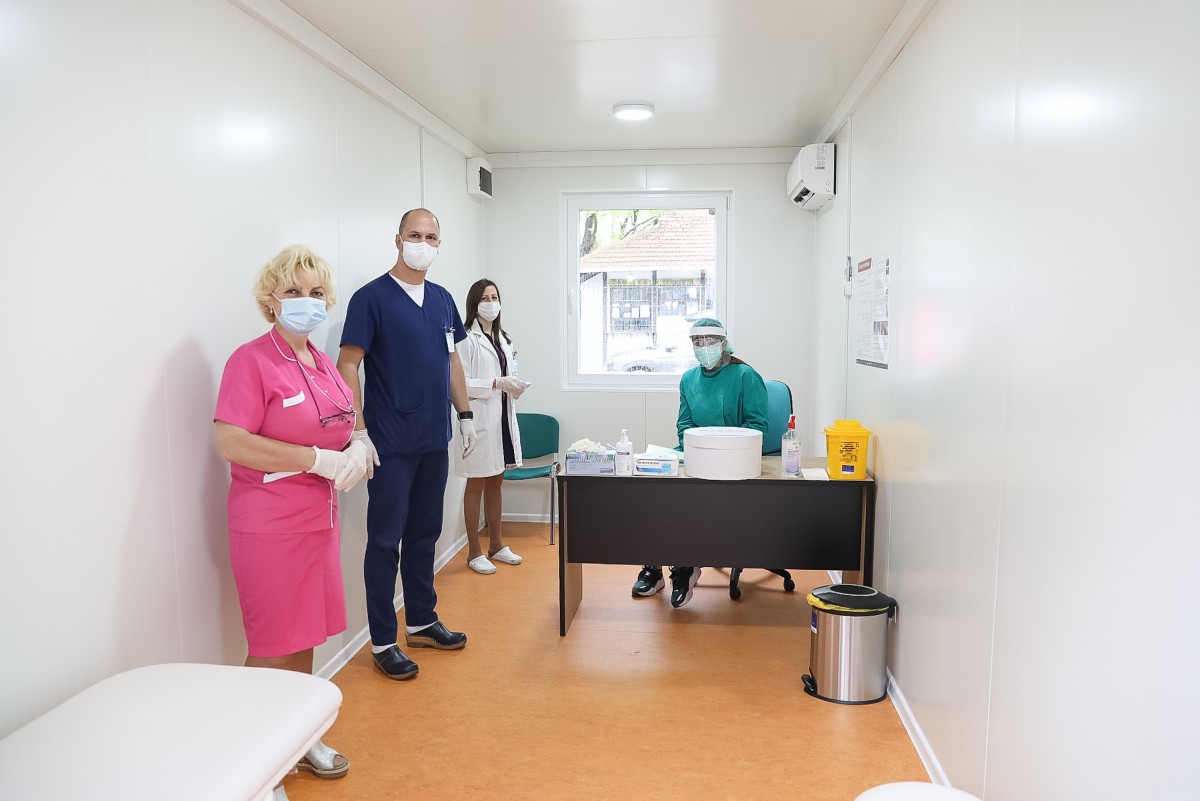Serbia, 21 October 2020
EU support to Serbia in combating the spread of the Covid-19 virus
On April 8, 2020, the European Union announced its global response worth 15.6 billion Euros to combat coronavirus across the globe. The initial support of 93 million Euros was allocated to Serbia to address the urgent health related issues caused by the COVID-19 pandemic along with mitigating negative socio-economic effects both during the crises and in the post-crisis period of recovery.
The Delegation of the European Union to Serbia and the Ministry of European Integration repurposed 15 million Euros from the EU pre-accession funds (IPA) for urgent measures, while for a part of this assistance package of almost five million Euros, the agreement was signed on 3 April 2020 between the Head of the EU Delegation to Serbia, Ambassador Sem Fabrizi, Minister of European Integration Jadranka Joksimović and Michela Telatin, Head of the United Nations Office for Project Services (UNOPS) in Serbia, an organisation selected as a trusted partner to conduct an emergency procurement of medical equipment. For this purpose, from the budget of two EU-funded projects implemented by UNOPS in Serbia, 4.9 million Euros were reallocated – 1.4 million Euros from the EU PRO development programme and 3.5 million Euros from the European Union Support to Social Housing and Active Inclusion (SHAI).
As part of the measures taken to combat the pandemic, UNOPS has launched an emergency procurement mechanism globally that has enabled the efficient delivery of 100 triage containers, 50 respirators, 25 anesthesia devices that include respiratory monitoring and comprehensive monitoring of vital parameters, 50 intensive care monitors, 300 non-contact thermometres, 800,000 masks, 100 oxygen concentrators as well as laboratory equipment and tests.
The received medical equipment was procured in accordance with the priority needs determined by the Ministry of Health, and was distributed to hospitals and health institutions throughout Serbia, where it was most needed. Although the equipment was initially mostly used to control spread of the coronavirus, in the long run it contributes to the strengthening of the entire health system.
Part of the equipment provided with the support of the European Union funds repurposed from the EU PRO programme has contributed to the strengthening health sector in cities and municipalities in southeastern and southwestern Serbia, where 50 medical containers for triage and urgent care of patients were installed.
One of these fully equipped containers with an examination bed, table with two chairs, a non-contact thermometre, and the equipment for the removal of medical and infectious waste arrived at the Health Center in Knjaževac. “First of all, this ensures safe work for our employees and reduces the possibility of spreading the infection,” says Ivica Rakić, director of the Health Centre, explaining that now patients can be tested outside the health institution, and if necessary, serological tests can be performed.
Even after the delivery of emergency medical equipment, the EU and the Republic of Serbia, in partnership with UNOPS, continued to jointly solve the problems caused by the prolonged duration of the pandemic. Thus, from the funds of the EU Support to Social Housing and Active Inclusion (SHAI) programme, 2,000 Roma families with more than 8,500 members living in Belgrade, Valjevo, Niš, Koceljeva, Vranje, Subotica and Lebane received packages with food and hygiene products. The EU also supported the engagement of about 200 health workers who will work for six months in 24 public health institutions in the municipalities where it is most needed. This aid, worth one million Euros, also included the purchase of medical uniforms for all newly hired workers.
The modern, mobile ambulances that are placed in front of health institutions, but also some other medical items, were procured from domestic suppliers, which additionally contributed to the economy in the country, which, as everywhere in the world, was most affected by the crisis.




